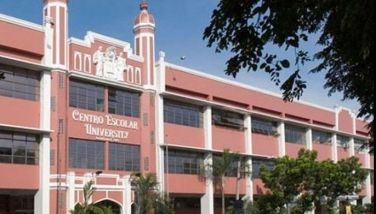Tug-of-war among flour millers

Not visible to the public eye is the tug-of-war between two groups of flour millers, and the end result could be shrunk, if not higher-priced pandesal and Pinoy tasty.
The protagonists are the Philippine Association of Flour Millers (PAFMIL), composed of 14 milling companies on one hand, and on the other, 16 flour millers headed by Ernesto N. Chua of the Malabon Long Life Trading Co. and chair of the Philippine-Turkish Business Council.
The Philippines does not grow wheat, so flour millers have to import wheat flour from foreign sources. PAFMIL gets most of its supply from the United States, and the Chua group from Turkey. The flour is processed by the local millers to make bread and other flour-based products including cakes, donuts and noodles.
For a long time, PAFMIL had been complaining about Chua’s group “dumping†Turkish flour in the market. It seems it has won the first round of the “fight†when, based on its petition, the Department of Agriculture imposed provisional anti-dumping measures against eight Turkish flour importers. Currently, the Tariff Commission is investigating the anti-dumping charges to determine if higher tariff should be imposed on Turkish flour.
“Dumping†is defined to happen when the domestic selling price of a commodity in its country of origin is higher than its export price.
To prove that Turkish flour is being dumped in the country, PAFMIL officials said at a press meeting that in 2012, the average export price of quality flour worldwide was $470 per metric ton, while TF’s export price to the Philippines was only $349 per MT. The TF at $349, said the officials, is even cheaper than the quality wheat imported by local millers as raw material, and priced below that of wheat flour sold in Turkey for animal feeds.
In a handout, PAFMIL claimed that TF import grew by over 70 percent in 2012, and the projection is that the unabated dumping of TF would kill the local flour milling industry by 2017, along with the thousands of jobs for Filipinos it generated.
“In such a demise of the local flour industry, the Philippines would be held hostage to the pricing dictates of Turkey and other foreign flour exports. Turkish flour is cheap now, but wait when they have killed our own flour industry. They would have us by the neck then.â€
At a recent Bulong Pulungan sa Sofitel, Chua, accompanied by lawyer Kristine Alcantara of the Turkish Flour Yeast and Ingredients Promotion Group (TFYI), denied PAFMIL’s allegations of Turkish importers dumping Turkish flour in the country.
Chua said Turkish flour is not dominating the local flour industry. About 65 percent of the market is dominated by “hard†flour, which is mostly sourced from the United States (and imported by the dominant millers) and used for bread and other baked products. The rest of the market (35 percent) is “soft†flour, used in noodles and other products, and that is what Turkey exports, said Chua.
Most of the buyers of Turkish flour, he said, are small bakeries in rural areas, and makers of noodles that are sold in public markets.
Alcantara said that “with its affordability, Turkish flour has allowed small and medium-scale businesses to operate and provide livelihood to hundreds of thousands of Filipinos.â€
Alcantara cited reasons why Turkey sells its flour at low prices.
First, by tradition, Turkey has been in the wheat and wheat flour business for thousands of years, and the country has around 700 flour mills in operation. Second, with its high production capacity, Turkey is among the world’s largest producers and exporters of wheat and wheat flour. Three, Turkey’s strategic location gives it the advantage of getting competitive freight rates for eastbound cargo, shorter transit time and less storage fee, all of which bring about cost savings and efficiency for Turkish flour exporters, and fourth, Turkey utilizes well-developed flour milling machinery, which allows flour millers to minimize operating costs while enjoying a bigger scale of operation.
Chua said when it comes to food security no country should make the mistake of relying on one source. “Therefore, the local industry and the imports industry should co-exist. We reject the fear scenarios that the imports will kill the local industry. The opposite, the imports will bring competition to the industry so the industry will be even stronger. The producers will feel the pressure to renovate and streamline their operations in a more efficient way.â€
Chua cited the case of Indonesia. When Turkey started exporting wheat flour to Indonesia in quantities, there were only eight flour mills in the country. Three mills were controlling around 90 percent of the market. As Turkish flour opened up the market, more and more mills emerged. Now there are 22 flour mills operating, and another four are under construction.
On Turkish flour importers’ use of fumigation on their flour, Alcantara said, “Fumigation is done on almost every agriculture product for pest control, not because the produce is toxic or unhealthy but to prevent it from getting infested with weevils. We are sure that PAFMIL member mills must be performing fumigation in their facilities at least every three months since this is a hygienic requirement in every modern flour mill around te world.â€
By the end of this month, we will know if the Tariff Commission is going to slap higher taxes on Turkish flour. If, as Chua said, the price of flour-based products could go up on account of the provisional imposition of duties on eight of the Turkish flour importers, Trade and Industry Undersecretary Vic Dimagiba has stated that the imposition of additional anti-dumping duties on Turkish flour will not have any effect on current prices. Bakers have given assurances that they will not raise their prices, with the price of Pinoy Tasty to remain at P37 while pandesal will be at P22.50.
We shall know at the end of this month what fate lies ahead for Turkish flour and the bread-eating consumers.
* * *
Lina Castillo-Sarmiento, chair of the Human Rights Victims’ Claims Board announced the provincial caravans for Claims Intake. She encourages everyone to apply for both Reparation and Recognition as victims of human rights violation during martial law, or just Recognition. The claimants need to produce the affidavit of their story and documents supporting their alleged human rights violations.
The venues for claims application are the following:
Daily during working days at the NCR: Virata Hall, E. Jacinto St. UP Diliman Quezon City: 8 a.m.-5 p.m. until Nov. 10.
Eastern Visayas: Leyte Sports Development Center, Sta. Cruz St., Tacloban City on June 23-24.
Central Visayas: Cebu City Social Hall, City Hall, June 26-27.
Western Visayas, the venues are Provincial Capitol, Iloilo City, June 30-July 1.
People’s House NKK Annex Building, formerly New Government Center, Bacolod City (the mayor has made the arrangement for this venue), July 3-4.
* * *
Email: dominitorrevillas@gmail.com
- Latest
- Trending

























